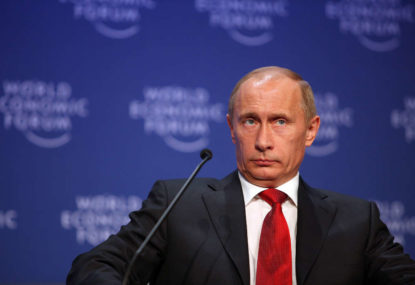Russia were handed a suspended disqualification by UEFA and fined 150,000 euros on Tuesday.
Specifically, this suspended disqualification will only be enacted if Russian fans commit further violent acts inside Euro 2016 stadiums.
For example, if the appalling scenes following the final whistle in Russia’s 1-1 draw with England are repeated, Russia will be ejected from the competition and, as per the tournament rules, all of their fixtures, already played or otherwise, and all points gained or lost by their opponents in said fixtures, would be considered null and void.
If this were to happen, then third-placed teams, both inside and outside Group B, would be severely affected, as the criteria for selecting the best third-placed teams to go through to the knockout rounds emphasises total group stage points collected as the primary selection method.
As to whether further violence – the type that would disqualify Russia – will occur, well, only a person verging into the deluded would assume that UEFA’s actions have done enough to scare the hooligans into acting peacefully.
Multiple flares were lit in the Russian end of the stadium during the England match, and “racist behaviour” was also mentioned in UEFA’s charges. Further in-ground violations may happen.
But then – the concluding bullrush in the England match aside – most of the brutality occurred outside the stadium walls, in the streets and walkways of Marseille, where hordes of Russian and English hooligans mauled one another for fun, seasoning the cobbles and the occasion with blood and teeth.
GoPro footage, from the perspective of some Russian thugs, has since emerged (warning: the images therein are graphically violent). The pegging of glass bottles and the stomping of prone bodies is played out in front of a boppy Russian rap track, and an upbeat jazz number.
A bloodsport within a sport; it’s clear this is the reason many of these travellers have arrived in France, to shout, to fight, and to revel in an orgy of violence fuelled by Heineken and nationalism. The savagery might be tethered to football, the Euros might be used by some as a reason to fight, but it’s clear that some parts of the Russian support just want to punch someone.
And why wouldn’t they, when their behaviour is actively encouraged by pillars of the Russian footballing establishment? Igor Lebedev, Russian FA member, tweeted out in support of the Russian aggressors, saying “Well done, lads. Keep it up!”.
Various members of the Russian delegation that travelled to France are known members of far-right political groups or figureheads of extremist supporters groups.
In two years’ time, the next World Cup will kick off in Moscow, assuming FIFA don’t reconsider their choice, which they won’t (by the way, the current acting head of UEFA, Ángel María Villar Llona, is also the head of the FIFA bureau chairman of Russia 2018).
It seems safe to assume that, in the next two years, Russia probably won’t have improved the atmosphere of racism, homophobia and violence that tends to gravitate around their footballing centres. The Zenit St Petersburg supporter group that demanded their team sign and play only white, heterosexual players is still alive and well.
The 2014 Sochi Winter Olympics saw widespread condemnation from participating athletes and nations of Russia’s anti-LGBTQ stance, and little has changed since.
What will happen when, on home soil, defending their turf, these same brutish factions balaclava-up and take to the streets in 2018? Cost of travel and accommodation will now be a non-factor, and one assumes incidents of racist chanting, like we saw at Euro 2012 in Poland and the Ukraine, will be even more frequent at a broader World Cup, where African and South American teams are present.
Will there be outright warring on the streets? How many will be injured critically, like one Englishman was in the battle of Marseille? How many foreheads will be split by the batons of over-zealous policeman responding to the frenzied chaos?
Leonid Slutsky, the Russian head coach, has made an appeal to fans to behave themselves. The French police have already started deporting suspected Russian hooligans, a matter of too-little-too-late when you consider the minimal police presence inside the stadium in Marseille, an astonishingly reckless oversight.
As to the state of the policing, a senior Russian law enforcement official tweeted out condemning the failure of the French police to control the situation, saying that they are more used to policing “gay parades”. Charming.
The entire Russian nation cannot be defined by the acts of a few violent groups, or by the remarks of a few politicians. These appalling events have caused genuine outrage, and drawn stone-faced criticism, from all sides.
The English hoodlums are to blame for Marseille running red as well. But it’s Russia that will host the world’s biggest sporting tournament in two years’ time, and it is the country’s track record of tolerating – even promoting – the ignorant, hateful oppressors of human rights that cause such pessimism.
We cannot rely on FIFA to act in defence of basic morality. We cannot reasonably expect the Putin government to put forth anything more than tokenistic reform measures. So what hope is there?





























































































